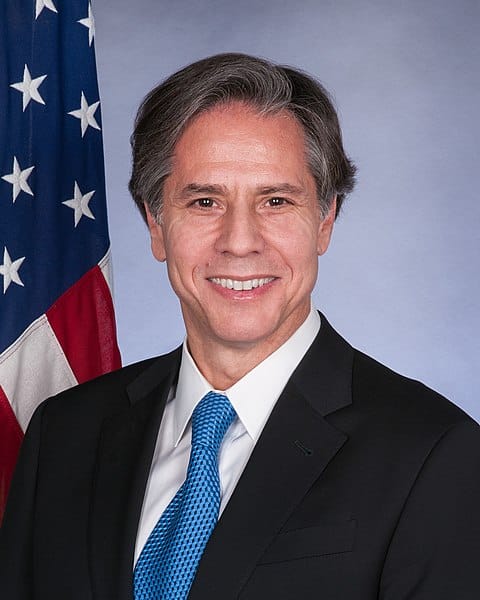In a major escalation with Moscow, the Biden administration announced on Thursday a series of sanctions against Russian individuals and entities. The White House also said it is expelling 10 Russian diplomats.
In an announcement on the sanctions, the State Department said they were being taken in “response” to a series of alleged Russian actions that the U.S. has never proved Moscow was responsible for.
“Today, we announced actions to hold the Russian Government to account for the SolarWinds intrusion, reports of bounties on U.S. soldiers in Afghanistan, and attempts to interfere in the 2020 US elections,” Secretary of State Antony Blinken said in a statement.
The claim that Russia paid bounties for U.S. troops in Afghanistan has no basis and was even walked back by Biden administration officials on Thursday. The claim first appeared in a report from The New York Times last June, and since then, just about every U.S. military leader said no intelligence corroborated the report.
Putting the final nail in the coffin of the Russian bounty story, a senior Biden administration official told The Daily Beast on Thursday: “The United States intelligence community assesses with low to moderate confidence that Russian intelligence officers sought to encourage Taliban attacks US and coalition personnel in Afghanistan in 2019 and perhaps earlier.”
The fact that the Russia story has essentially been debunked but is still included in the State Department’s list of grievances with Moscow shows what little credibility the US has with any accusations against the Russian government.
The SolarWinds intrusion is the main incident the U.S. is sanctioning Russia over, but the claim that Moscow was behind the hack is also highly dubious. Announcing the new sanctions, the Treasury Department formally accused Russian Intelligence Services of being behind the hack. Missing from the accusation is any evidence.
Before the Treasury Department’s claim, the only formal accusation from the U.S. came from several intelligence agencies that said in a joint statement that the SolarWinds hack was “likely” Russian in origin. The statement lacked any evidence.
One reason the U.S. claims the SolarWinds hack was done by Russian intelligence was the “sophistication” of the intrusion. But congressional testimony from SolarWinds’ current and former CEO revealed the software firm’s server password “solarwinds123” was publicly available on the internet for years. A cybersecurity expert that used to advise SolarWinds said the hack “could have been done by any attacker, easily.”
The U.S. also cited alleged interference in the 2020 election while announcing the sanctions. Last month, the Office of the Director of National Intelligence released an assessment that claimed Russian President Vladimir Putin ordered an influence campaign that sought to “denigrate” Biden in the 2020 election. But again, missing from the assessment was any evidence or explanation of how U.S. intelligence reached the conclusion.
The new sanctions came after Biden spoke with Putin on the phone on Tuesday and proposed an in-person meeting. On Wednesday, Russia warned that it would take measures in response to any “unfriendly steps” by the U.S. Kremlin spokesman said new sanctions from the U.S. would mean Biden’s “words” would not “correlate” with his actions, referring to Biden’s call with Putin where he said the U.S. and Russia should work together on things like arms control.
President Biden had earlier imposed sanctions on Russian officials over the jailing of opposition figure Alexei Navalny. Biden’s rhetoric has also been incredibly hostile. In an interview last month, Biden agreed that Putin is a “killer” who has “no soul.”
The new U.S. sanctions also come against the backdrop of rising tensions between Russia and Ukraine, which has led the U.S. to reaffirm its “unwavering” support for Kyiv. The U.S. reportedly canceled a planned deployment of warships to the Black Sea amid the Ukraine stand-off, but the sanctions indicate Biden is keen on escalating with Moscow.
This article was originally featured at Antiwar.com and is republished with permission.
































